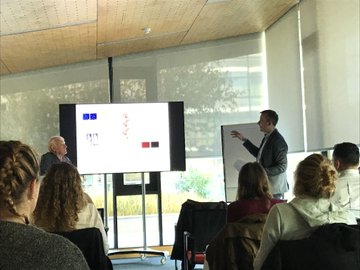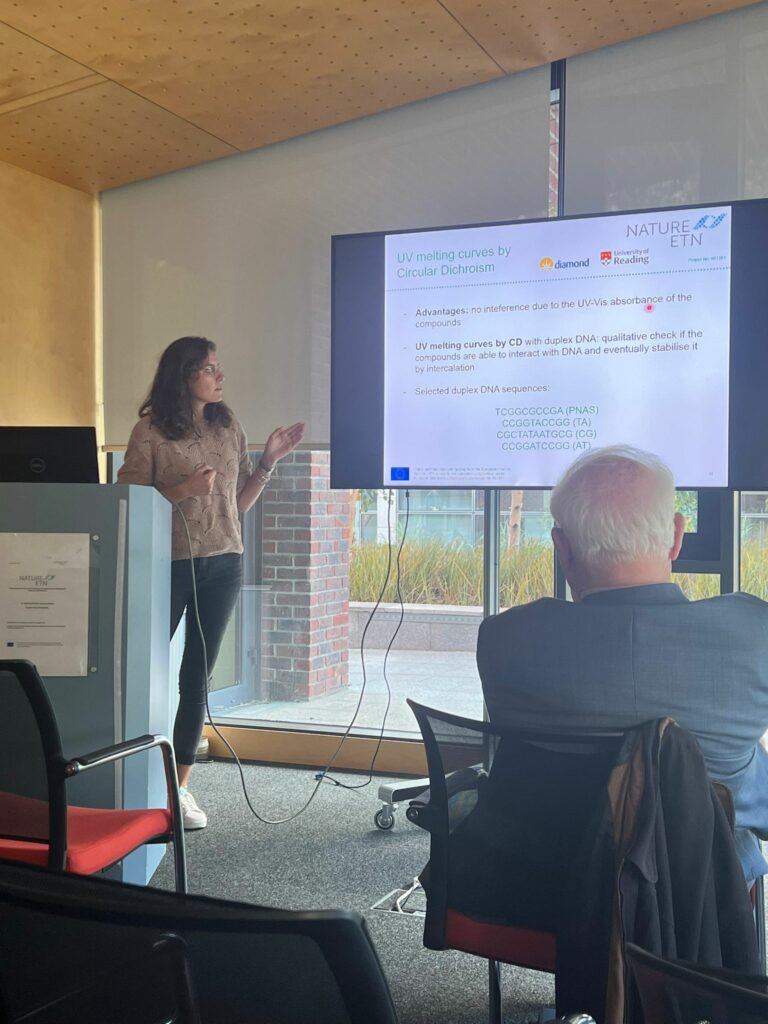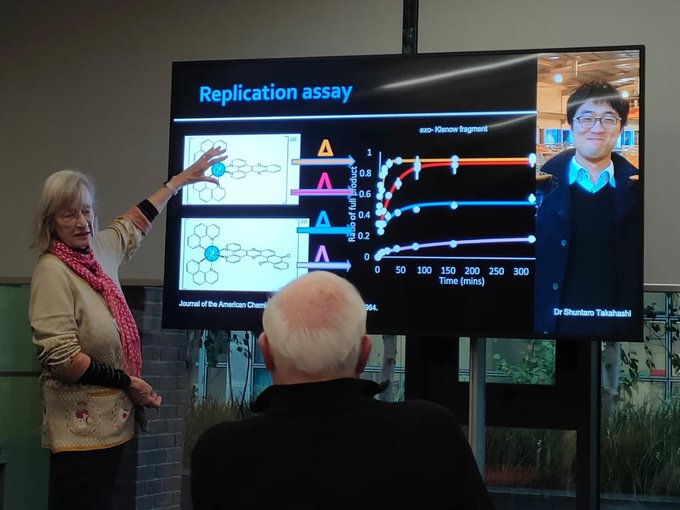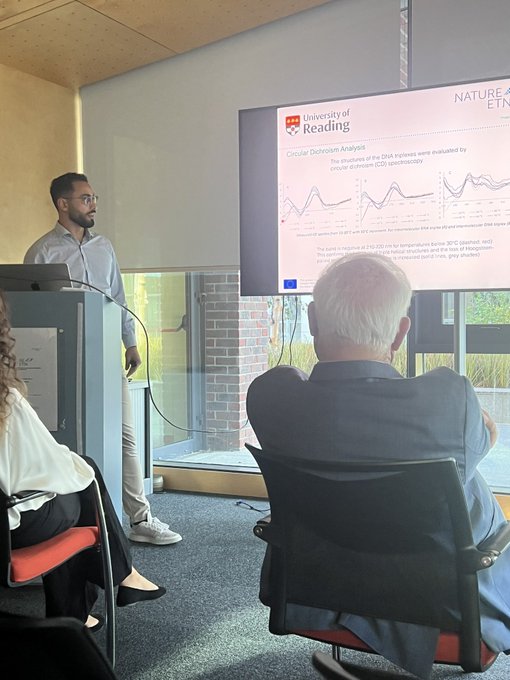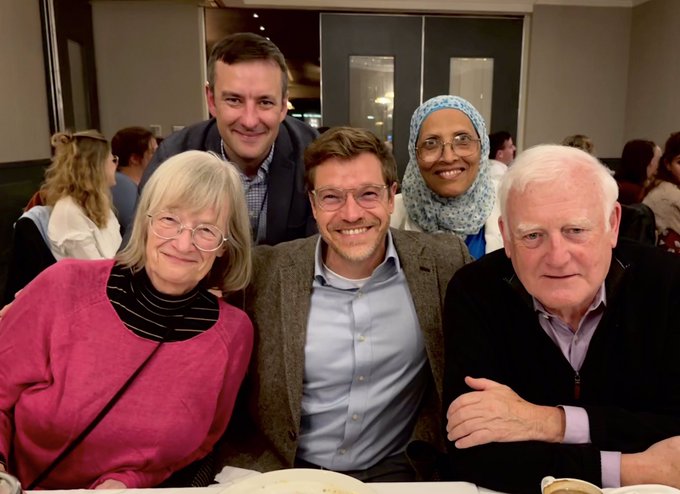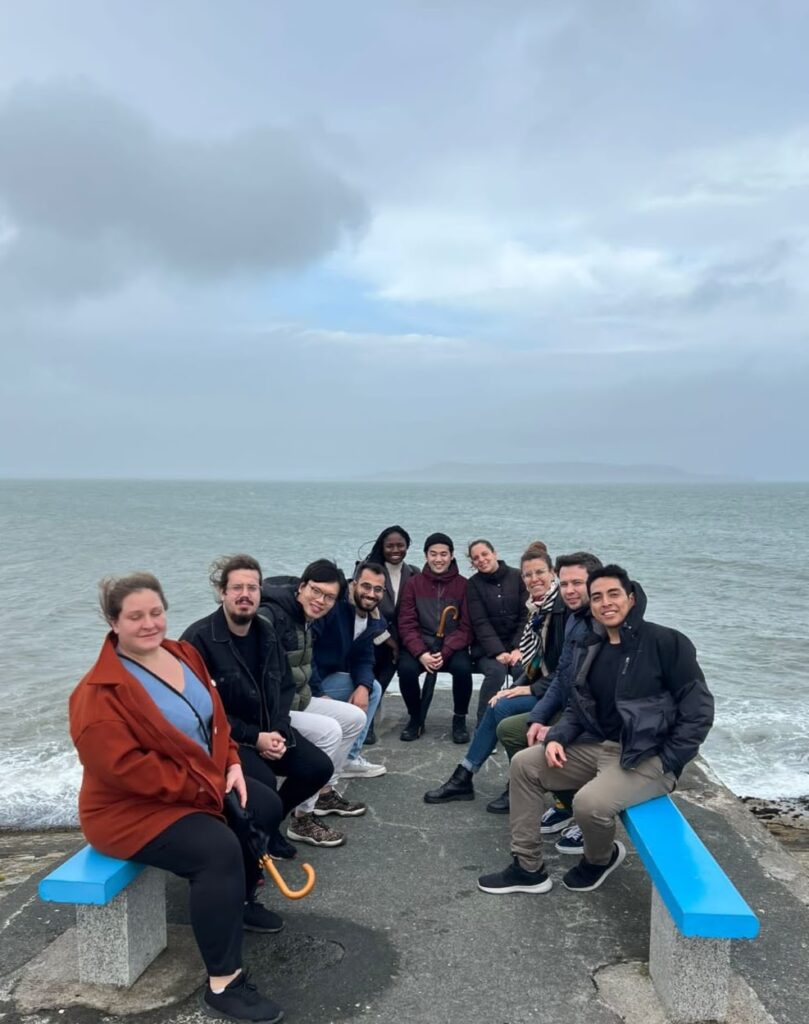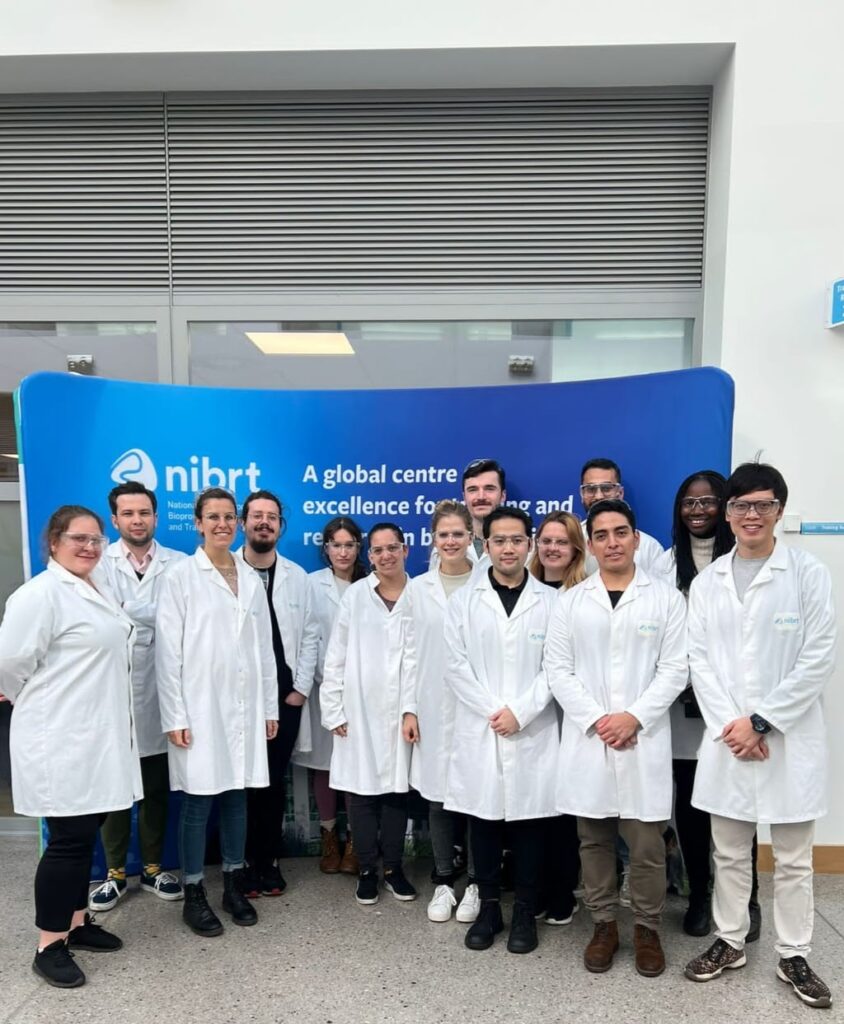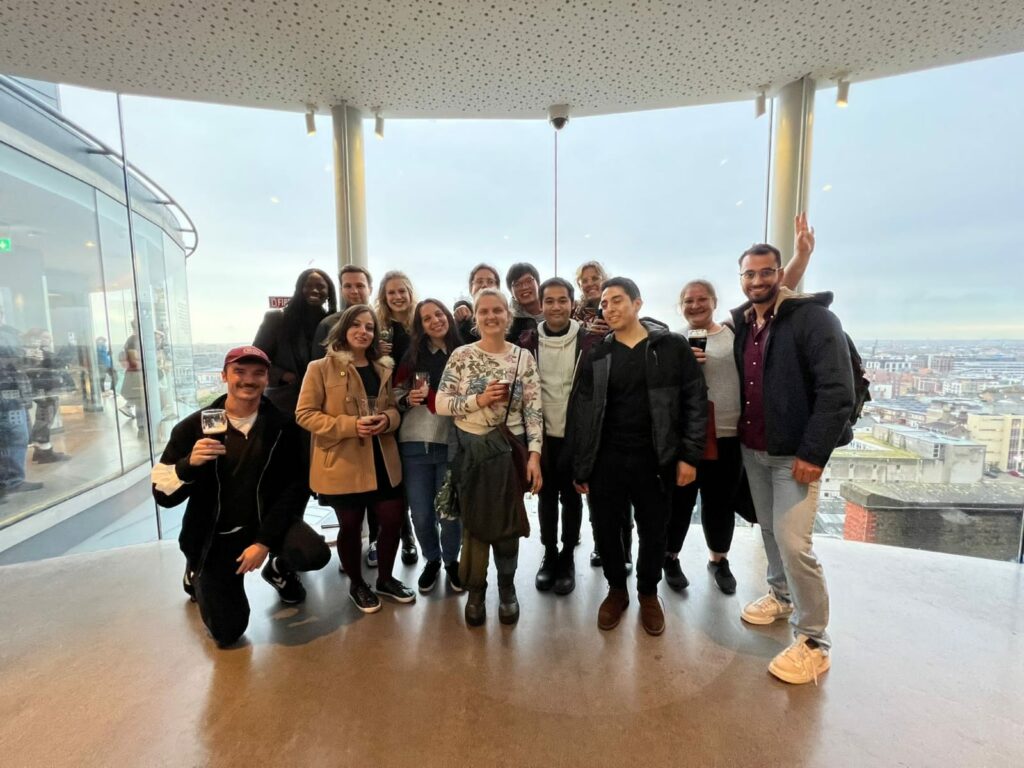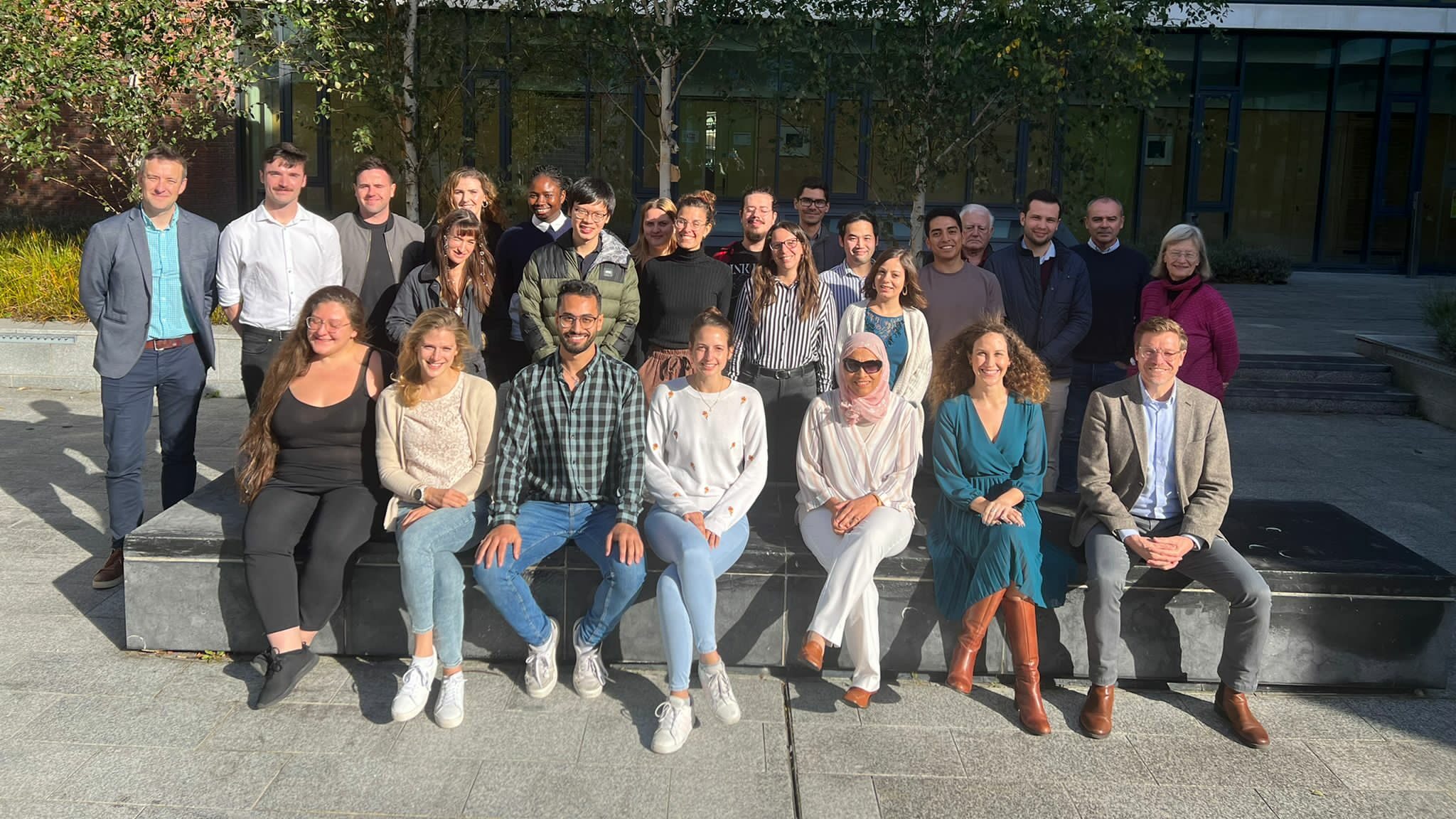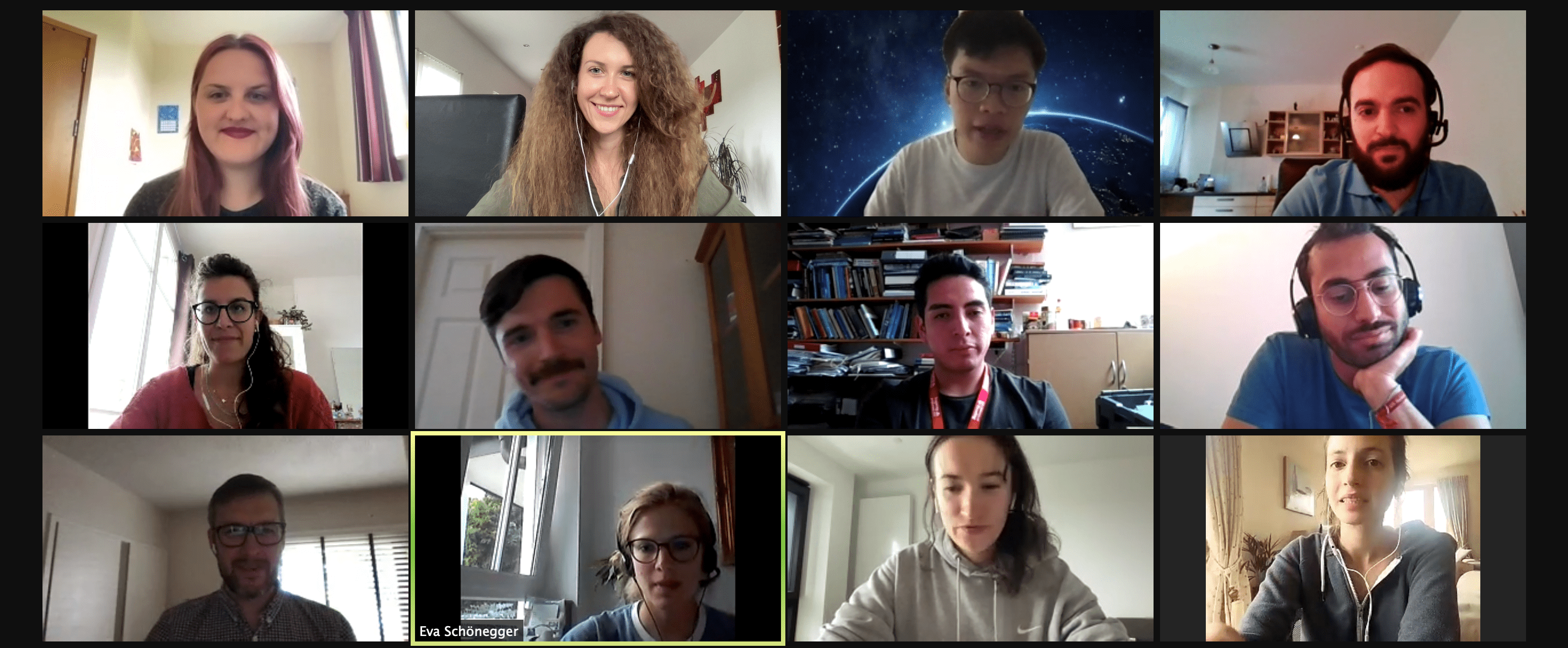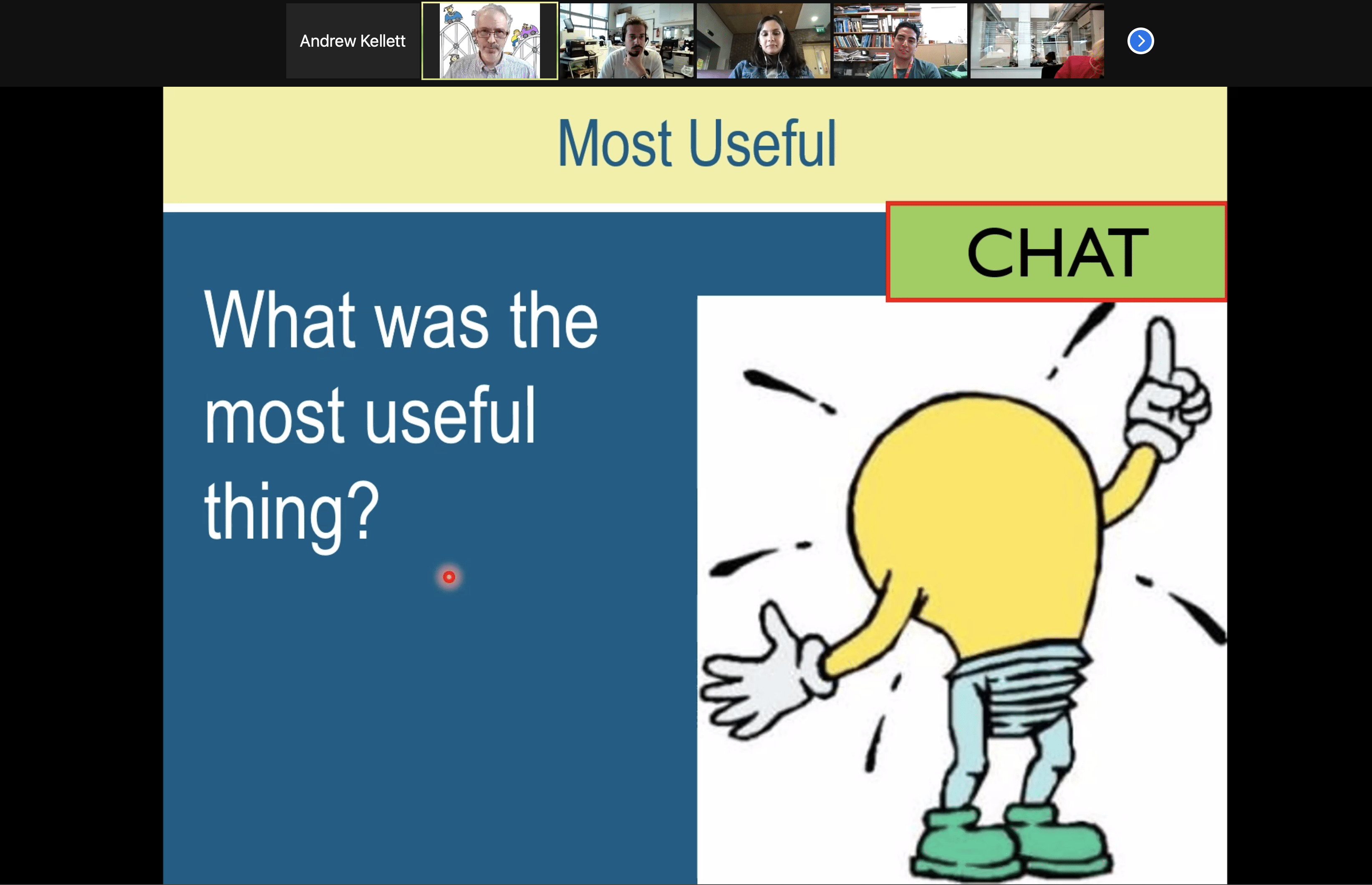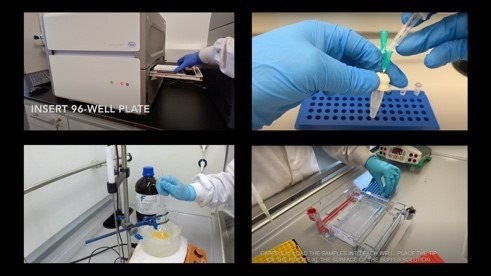Early-stage researchers (ESRs) and principal investigators have been invited to attend the 4th training week at Dublin City University where this EU-funded research consortium was born.
Prof. Andrew Kellett first gave an update on the project before introducing Prof. Nicholas Farrell from Virginia Commonwealth University (US), who is one of the scientific advisors of NATURE-ETN and is interested in Glycosaminoglycans as signalling molecules. He talked about his latest results and joked about how retiring is difficult when you can’t stop looking for more results.
Each ESR presented their results obtained so far followed by questions, comments, and discussions for future ideas. On Thursday, a team from the German biophysical instrument manufacturer NanoTemper delivered training on the Monolith technologies in Andrew Kellett’s lab to ESRs who had the opportunity to prepare the samples, learn how to read the results, and think about how this technology can be applied to their projects.
Finally, on the last day of the training week, ESRs were hosted by Prof. Niall Barron at the National Institute for Bioprocessing Research and Training (NIBRT). Prof. Barron explained the advanced therapy medicinal products, emphasizing the need to keep in mind the patient delivery process while obtaining basic research results. ESRs conducted a complete tour guided by Dr Adam Pritchard who showed and explained the technologies behind the bioproduction of recombinant proteins, vaccines, and cell and gene therapies.
Before saying goodbye, the ESRs decided to go for a walk together. This time down to the lighthouse at Dún Laoghaire, a small town outside the busy Dublin. Prof. Barron mentioned Emerson who said, “Science does not know its debt to imagination”, and isn’t the sea the best place to clear the mind and fire the imagination?
In this training week, new collaborations were created between ESRs, wrapping up before departing to their different locations in Europe, where they will bring home new ideas to apply in their labs and Irish souvenirs!
By Ahmad Abdullrahman (ESR4)
